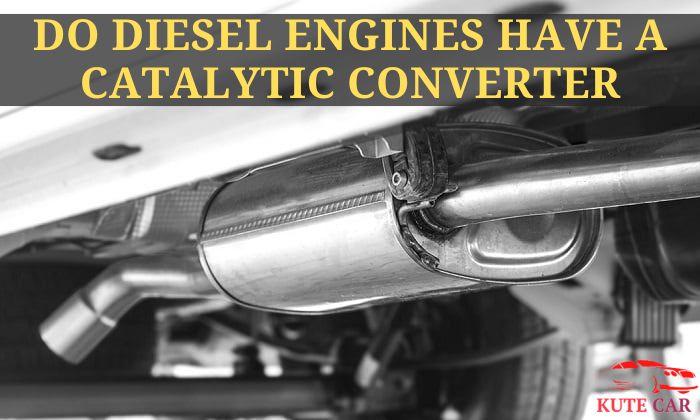Do diesel engines have a catalytic converter? It is an essential question for many diesel engine owners. If you have ever wondered whether diesel engines have the same emissions-reducing quality found in gasoline-powered vehicles. This blog will cover everything you need to know about catalytic converters and diesel engines, including what they are, why they are significant, and how they work. By the end of this post, you will have a sound knowledge of whether or not diesel engines have a catalytic converter.
What is a Catalytic Converter?
In the 1970s, a Catalytic converter was developed for gasoline engines. But in the 1990s, they began to be used in diesel engines. Every diesel system will have a Diesel Oxidation Catalyst. It converts the carbon monoxide into carbon dioxide and cracks down any unspent fuel. Functionally, this factor of the diesel catalyst technique acts just like it does in a gas cat.
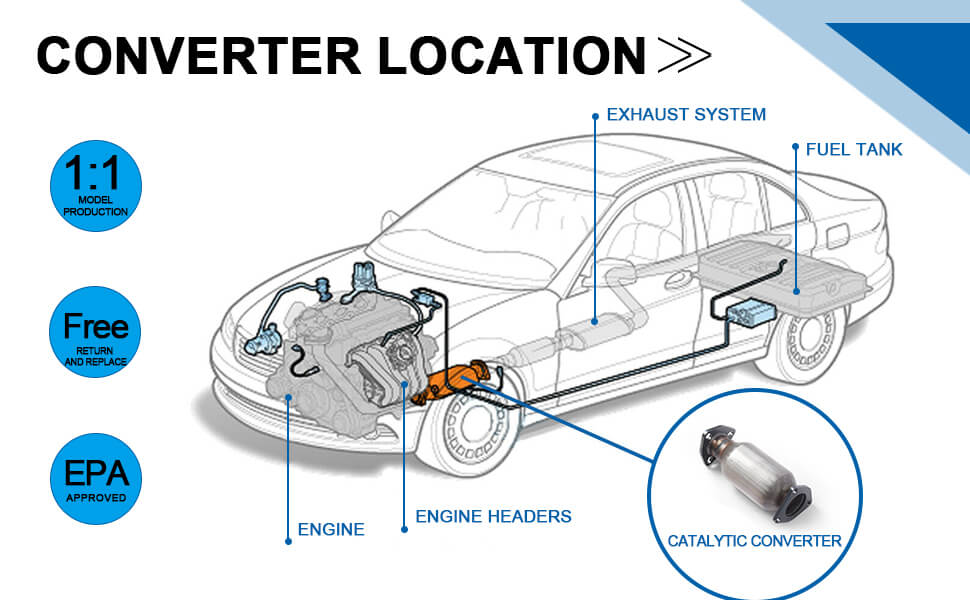
A catalytic converter is an exhaust emission control instrument that diminishes toxic pollutants in the exhaust gasses. The catalytic converters convert pollutants into less harmful substances.
Diesel cars have a catalytic converter that uses special metals and chemicals to convert carbon monoxide and hydrocarbons into water and carbon dioxide. The metals used in diesel catalytic converters are platinum, palladium, and rhodium. To maintain your car running effectively and securely, you must understand how catalytic converters function.
How Does it Work?
Diesel cars have a catalytic converter just like gasoline powered motorcars do. It is accountable for decreasing exhaust emissions from diesel-powered vehicles by converting toxic pollutants into less dangerous substances.
When the exhaust gasses from the diesel engine enter the catalytic converter, they pass through a honeycomb of ceramic material that includes a catalyst. This catalyst helps to break down the hazardous pollutants in the exhaust gasses into less harmful substances.
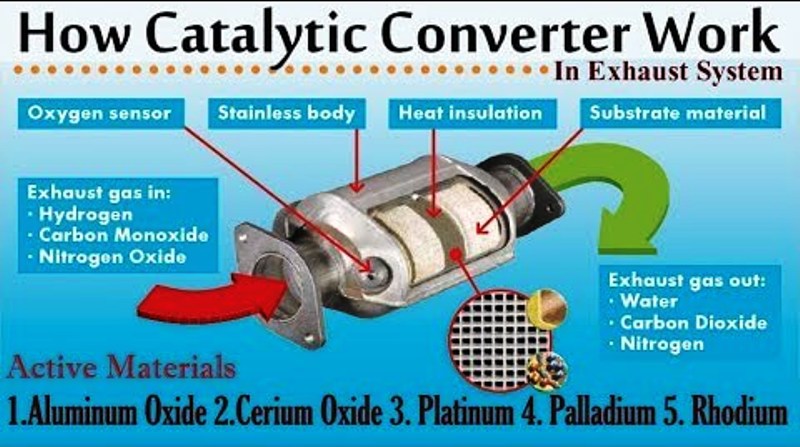
The catalytic converter in diesel cars is critical because they produce a higher level of nitrogen oxides (NOx) than gasoline-powered vehicles. Without a catalytic converter, diesel engines would be much more polluting than they already are.
What are the Several Types of Catalytic Converters?
There are several types of catalytic converters available for diesel cars. The most familiar type is the diesel oxidation catalyst (DOC). DOC breaks down hydrocarbons and other volatile organic compounds (VOCs). Another type of diesel particulate is to trap and decrease particulate matter (PM) from exhaust gasses.
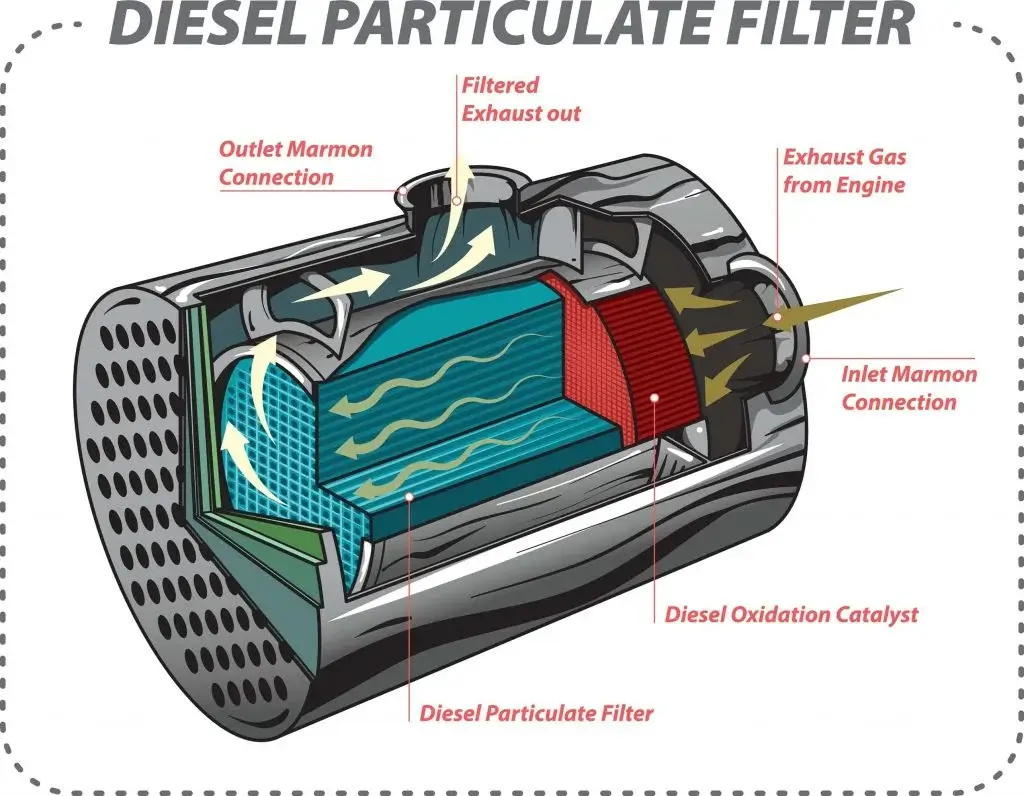
The third type is the selective catalytic reduction (SCR) catalyst. SCR reduces the number of nitrogen oxides produced by diesel engines. SCR systems work with an ammonia-based solution with a catalyst, which then reacts with the nitrogen oxides in the exhaust gasses to lower their presence in the atmosphere.
What are indications your catalytic converter is failing?
There are many reasons for a catalytic converter to fail. Some reasons are carbon build-up, overheating, physical deterioration, and contamination. Symptoms of your catalytic converter is faulty include:
- Lagging engine performance
- Your machine is overheating
- Reduced acceleration power
- Opaque smoke from the exhaust
- The smell of sulfur
What are the Benefits of Having a Catalytic Converter?
- Reduces harmful emissions like: Carbon monoxide, nitrogen oxides, and hydrocarbons
- Environmental protection: To cleaner air and reduces the impact of vehicle emissions
- Improved air quality: By minimizing the release of pollutants to human health and ecosystems.
- Extended engine life: Preventing the buildup of certain harmful substances.
- Enhanced fuel efficiency: Optimizing combustion processes
- Noise deduction: Catalytic converters can help reduce the noise and offer more pleasant driving experience.
- Smoother operation: To smoother engine operation and overall vehicle performance.
- Long-term cost savings: Compliance with emission standards
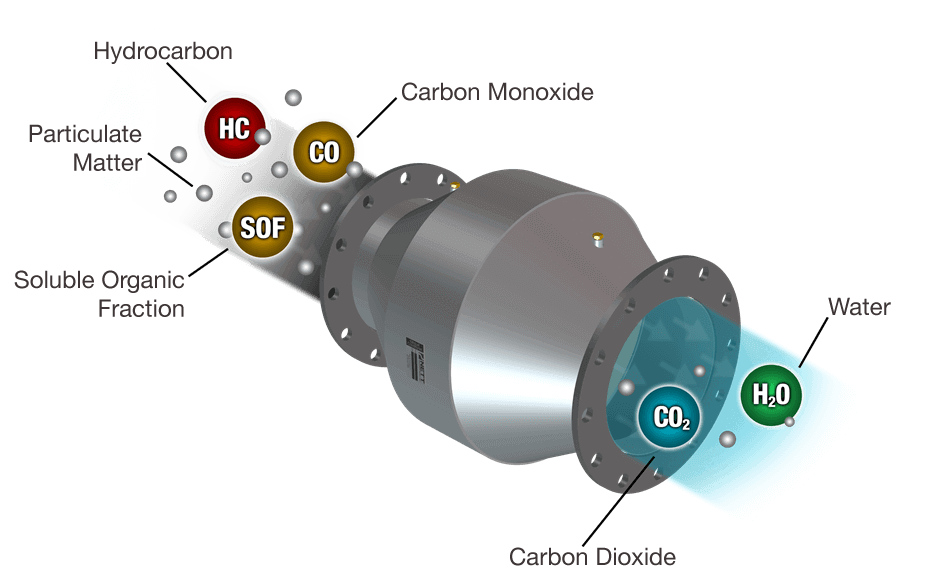
Overall, the main benefit of a diesel vehicle catalytic converter is that it aids in the reduction of emissions. It ultimately safeguards both public health and the environment.
Can you drive without a catalytic converter?
Catalytic converters play an important role in reducing harmful emissions from vehicles. Additionally, removing the catalytic converter can also cause the engine to run poorly, affect fuel efficiency, and increase emissions even further. It is always best to have a functioning catalytic converter to help reduce environmental impact.
Are There any Disadvantages to Having a Catalytic Converter?
Performance Hiccups:
- Reduced Engine Power
- Dipped Fuel Efficiency
Costly Replacements:
- High Repair Bills
Maintenance Demands:
- Clogging
- Overheating
- Physical Damage
Limited Scope:
- Not All Pollutants Eliminated
Environmental Concerns:
- Mining and Refining Impact
- Potential Material Risks
Not a Sustainable Solution:
- Do Not Address Climate Change
- Limited Lifespan
How often Should you Replace your Catalytic Converter?
Whether you drive a gasoline or diesel vehicle, you must inspect and replace your catalytic converter. As for diesel cars, an expert suggested that the catalytic converter should be replaced every 100,000 miles. The gasoline car catalytic converter is changed every 75,000 miles.
When replacing a catalytic converter, you will need to be sure that the new part is compatible with your vehicle.
How much Does it Cost to Replace a Catalytic Converter?
The cost to replace a catalytic converter relies on several factors. For example, diesel engines have a catalytic converter, then the cost to replace them is usually more costly than gasoline-powered vehicles. The cost to replace a diesel catalytic converter can range anywhere from $400-$3,000.
Conclusion
Diesel cars have a catalytic converter like gasoline-powered vehicles. These converters help reduce air pollution by converting harmful gasses. Therefore, diesel cars must include catalytic converters as a component of their emissions control systems. In summary, yes, diesel engines have a catalytic converter.
Therefore, you need to know what type of converter your vehicle needs and how often to replace it for optimal performance.
FAQ Regarding: Do Diesel Engines Have a Catalytic Converter
Q.1) How Diesel Catalytic Converters Are Different From Gas Catalytic Converters?
Diesel-powered vehicles have catalytic converters created from ceramic, whereas gasoline-powered vehicles have converters made from metal.
Q.2) How a catalytic converter improves the efficiency of a vehicle?
The catalytic converter in diesel cars also helps to reduce the amount of particulate matter, or soot, emitted from the engine. It enables the reduction of air pollution and improves overall efficiency.

